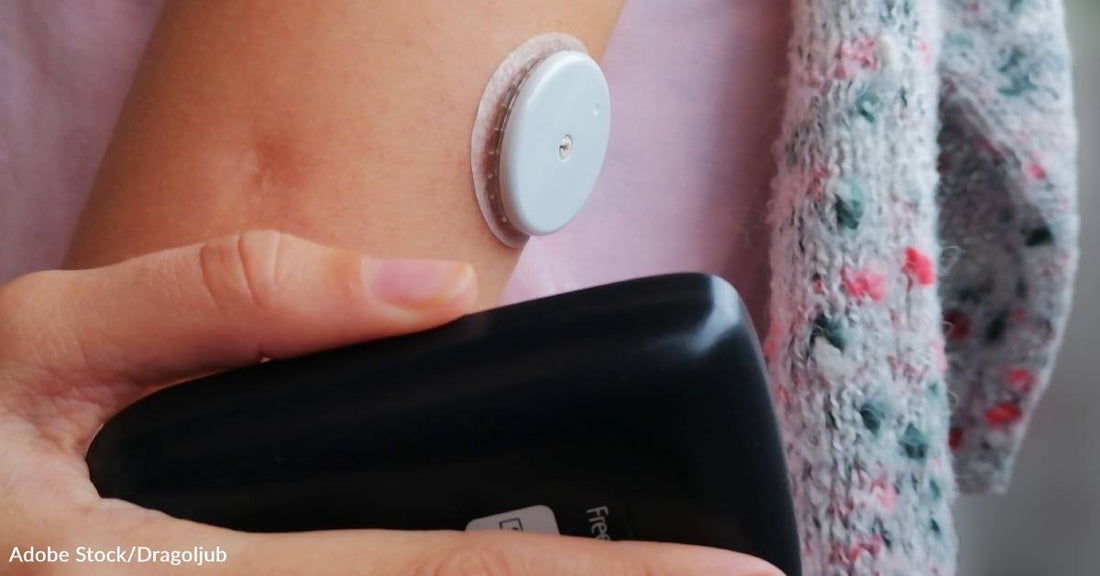Flash Glucose Monitoring May Reduce Diabetes Distress, Study Says
Elizabeth Morey
Flash glucose monitoring (FGM) involves inserting a sensor in the upper arm which users can read at any time with the help of a handheld reader device that they swipe over the sensor.
The Abbott FreeStyle Libre is currently the only flash glucose monitor on the market, although it is not available in all countries. It combines the benefits of traditional blood glucose monitoring and continuous glucose monitoring. The first uses test strips to give the user a real-time reading of their current blood glucose. The latter shows the user how their blood sugar has been trending for the last several hours. The Abbott FreeStyle Libre, on the other hand, gives the user real-time information as well as an eight-hour trend graph.
Dealing with the demands and limitations of diabetes often leads to burnout and distress, but a team of researchers has recently discovered that flash glucose monitoring could be the key to preventing or reducing diabetes distress.
Academics from the Hull University Teaching Hospital NHS Trust used data collected by the Association of British Clinical Diabetologists (ABCD) concerning nationwide use of the FreeStyle Libre. 9,159 patients were involved, 96.6 percent of whom were living with type 1 diabetes. 3,312 were involved in a seven-month follow-up.
Researchers collected data on participants' HbA1c values, their hypoglycemia awareness (known as a Gold score), and their self-reported diabetes distress scores. The number of times they scanned their FreeStyle Libre per day and their time spent within range was also noted.
Among the participants, diabetes-related distress affected more than half and was associated with higher HbA1c and impaired hypoglycemia awareness. Women seemed to be more affected than men.
However, after months of using the FreeStyle Libre system, the number of people with moderate to severe distress dropped from 50 percent to 26 percent. The use of the system was also associated with improved HbA1c numbers and better Gold scores.
In other words, the team learned that users of the FreeStyle Libre system have improved glycemic control and a better awareness of their own hypoglycemia. This appears to reduce their diabetes distress.
"This is the largest UK study looking at factors associated with diabetes distress scores in people with Type 1, before and after the use of FreeStyle Libre," says lead researcher Dr. Harshal Deshmukh. "The use of flash glucose monitoring was associated with an improvement in diabetes-related distress. Engagement with technology is an empowering way for people living with diabetes to self-manage their condition effectively – with both physical and psychological benefits."
Hopefully, flash glucose monitoring systems will be more prevalent and more available all over the world soon, because it's looking like they could be game-changers for some people! If you want to read more, the study has been published in the journal Diabetes, Obesity, and Metabolism.





